My home did not flood during Tropical Storm Allison, but the homes of many friends and neighbors did. In the aftermath, I spent days stripping carpets, flooring, and drywall from homes in Braeswood Place. Many friends and neighbors were displaced for long periods of time. Flooding is hard on families, kids, and neighborhoods. Allison did have a long term impact of how I think about flooding and storms. I now live in a high rise on the tenth floor, and my cars are parked on upper floors. There are other reasons I live where I do but Allison, Ike, and Alicia influenced my decision. My heart goes out to everyone whose homes were flooded.
The idea of charging City of Houston (COH) residents a tax for water runoff is ludicrous. Yet, this is exactly what the city did to its residents a few years ago with the Renew Houston charter amendment and Prop1 campaign. Houston streets were always designed to hold water during storms, and our taxes were used for such purposes before Renew Houston. Streets and storm drains are the first line of defense against flooding. Streets have always acted as conduits for runoff during rain events. For many years, Houston residents paid for this protection through their City of Houston taxes. In 2010, Stephen Costello and Annise Parker worked hard to pass Prop 1/Renew Houston/drainage fee/rain tax. Even though residents had already paid for these services via city taxes our elected officials thought a new double tax was necessary.
Robert Glaser and I set up a PAC to fight the proposed Charter Amendment. The most disingenuous part about the Prop1/Renew Houston/drainage fee/rain tax were the commercials. The rain tax disinformation campaign centered around scaring voters into believing that their homes would flood if they did not support Prop1. Their target: voters who experienced home flooding as a result of Allison.
Remember this guy:
The Charter Amendment centered on creating a new revenue source for the city. An enterprise fund was an appropriate name for the Prop1 fund because, in relatively short time, these funds were used to build bike trails and pay city employees. Hundreds of millions of dollars have been diverted from the stated purpose of building flood improvements or new roads. In other words, it was all a scam.
Prior to the election, I debated Jeff Ross, one of the Prop1/Renew Houston/drainage fee/rain tax proponents, on Channel 26. Jeff Ross, owner of a local engineering company, told viewers that the new tax would cost nothing more than the cup of Starbucks coffee that I was drinking prior to the segment. I made it clear that his math was way off and I estimated the true costs were, on average, triple what the proponents promised. I was correct in my math and the engineering community was wrong. The final cost to residents was closer to a really expensive bottle of wine. I guess it is relative if you are a wealthy engineering company owner set to benefit from the new charter amendment. Annise Parker later appointed Jeff Ross to be the watchdog over how the Prop1 money was spent. Watch the debate.
http://youtu.be/coILduJsBGw
One of the big issues and fears is that, once the tax was passed, the COH would simply reshuffle the deck chairs on the Titanic. The money would be used for things other than the stated purpose, flood control and street improvements. Of course, like all things financial with the COH salaries, benefits, and overtime are the true diversion. The COH has now moved over 500 public employees from public works to the Renew Houston Enterprise Fund. So the money you once paid for streets and drainage is now being used to pay for salaries, pensions, and overtime, just as we predicted. Very few if any flood improvements have been done at all with Prop1 funds and it is hard to tell for sure because the COH refuses to release hard data. The whole thing is a joke and now is the time to hold the bad actors responsible. First, accurate information:
There is one authority on the Brays Bayou who I listen to and follow: Dr. Phil Bedient is the Herman Professor of Engineering at Rice University. Currently, Dr. Bedient directs the SSPEED Center
“The Center for Severe Storm Prediction, Education and Evacuation from Disasters (SSPEED) Center was established in 2007 as a university-based research and education organization. Led by Rice University, the SSPEED Center organizes leading universities, researchers, emergency managers, and private and public entities to better address severe storm prediction and its impact on the Gulf Coast area.”
When I met Dr. Bedient he had already finished the preliminary work on the Brays watershed. This was done because of the work he was doing for the Texas Medical Center in relation to flooding. The Brays watershed drains into Brays Bayou and has a finite capacity. Once this capacity is reached and contributing streams and storm drains are full, streets and homes will begin to flood. It is counterintuitive to think that the faster you can place runoff water into the bayou, the slower you will flood. The opposite is true and the faster you drain water into the bayou the quicker homes flood when the bayou is at capacity.
I served as the President of the Braeswood Place Homeowners Association and wanted to make sure a flood like Allison never happened again, and so my flooding education began. My motivation was nothing more than never wanting to see my friends and neighbors lives devastated by flooding. I sought answers and there were few good ones. I quickly realized you cannot prevent flooding in low lying areas. The best you can do is to build above the flood plain, which will move with each storm depending on the base flood level elevation.
Rainfall amounts over a particular area is the determining factor on flood levels. Each area is different with natural and manmade elements that trap and hold water, which also causes flooding. If you live in an area that floods it is important to know where and how these systems work together. Let me give you a few examples.

The railroad tracks running North and South through Bellaire act as a man made barrier preventing water from entering Brays Bayou itself. Flooding will occur on the west side of the tract as flood waters try to enter the bayou. 288 acts as a barrier to Brays Bayou because the bridge was built too low where 288 crosses the bayou. You will notice this is one of the first places it floods during a rain event over the Brays watershed. The bridge spanning Brays on 288 has often been cited as one of the contributing factors as to why the Texas Medical Center flooded so badly during Allison causing billions in damage. These are examples of manmade impediments that cause flooding.
Natural examples include Kilmornack and Poor Farm ditches (great names), which run through West University and Braeswood Place and also contribute to flooding. There have been improvements to channel flow by West University and Southside Place over the years since Allison. The residents of Braeswood Place hate the idea of West U water flooding their homes. The reality is that all of the improved channelization just makes Brays Bayou flood faster and backs up Poor Farm and Kilmornack into West University and Southside Place; but, hey, politicians feel better and engineering companies make money.
The politics of flooding are always interesting to me because you have the federal government and local government at cross purposes. Let me explain, the Feds operate and control FEMA, they dole out the money during flood events for people to rebuild. Therein lies the rub. FEMA does not want you to rebuild knowing your home will flood again. With you as the owner or a subsequent owner, FEMA will have to write more checks. The cost to the American taxpayer is enormous as this happens throughout the country. The City wants you to rebuild because they want the tax base. It is always fun watching the City and Feds doing this weird kabuki dance with each other as they try not to tell the residents why they keep getting conflicting information.
This is why you read Big Jolly, so we can explain the stuff your government officials won’t tell you, right?
The reason I thought Costello and his merry band of engineers and contractors were way out of line with the rain tax was because they were preying on fears. The pro Prop1 mailers targeted those that flooded during Allison and other rain events. I also knew the day would come when a storm hit and people would say, “Hey, you told me my home wouldn’t flood if I voted for this charter amendment.”
The Prop1 folks were snake bit because I am sure they wanted a storm to hit before the Prop 1 vote. The funny thing was, we went into a very long drought. Now, we have a storm right in front of the Mayor’s election so I can hold the responsible parties’ feet to the fire, that’s what I am here for, right? Live by the flood, die by the flood.
Did I mention Costello the charlatan is running for Mayor? Brenda Stardig is also running for re-election. Stardig made the motion at council to put Prop1 on the ballot. Yesterday, I watched City Council and listened to Stardig tell the council that if she can just get her Renew Houston projects done, her constituents would be moved out of the flood plain. You really can’t make it up. The Mayor asked Brenda not to hold any meetings without people from the City present. Stardig was still clueless and will probably never understand Renew Houston was designed to loot and plunder taxpayers, not to fix flooding issues. I am picking on Brenda but Ellen Cohen does not understand it either based on her comments at council. I hope every resident who flooded asks for their Prop1 fees/taxes back.
The reality is that it rains in Texas and we should be happy for it because, one day, it will stop and we will declare a drought. Another group of engineers will then declare we need more water reservoirs and treatment facilities because the world is going to end. See how it works?
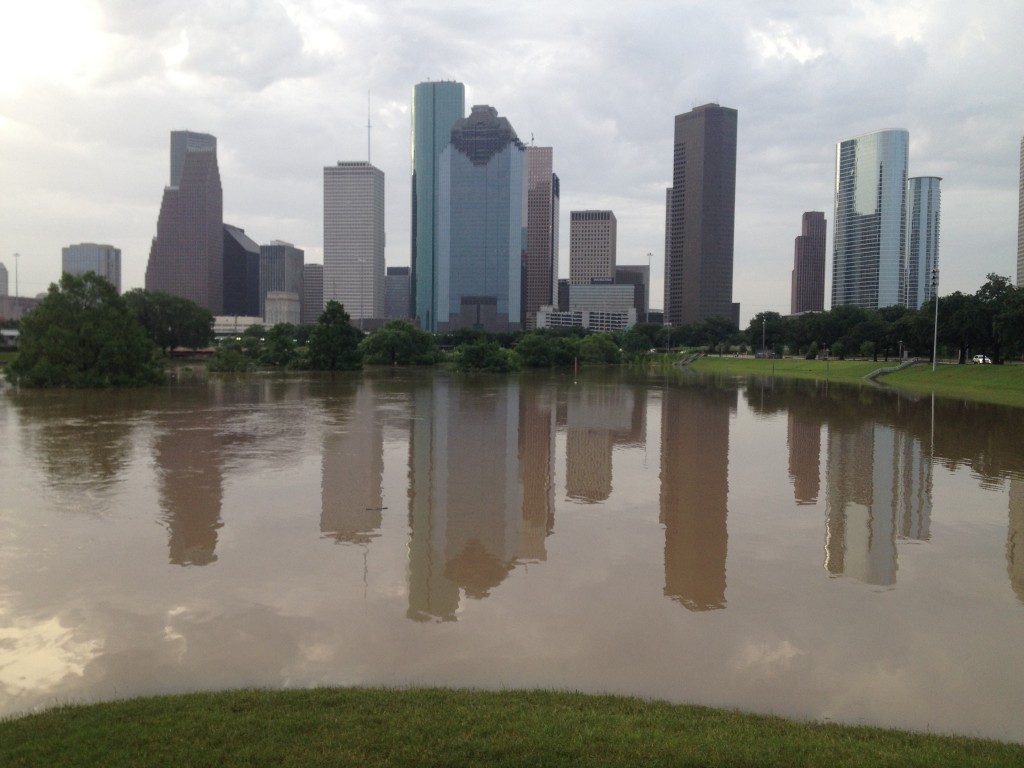
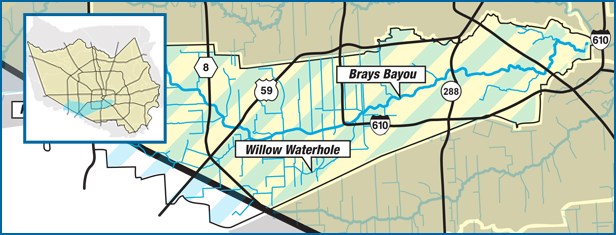
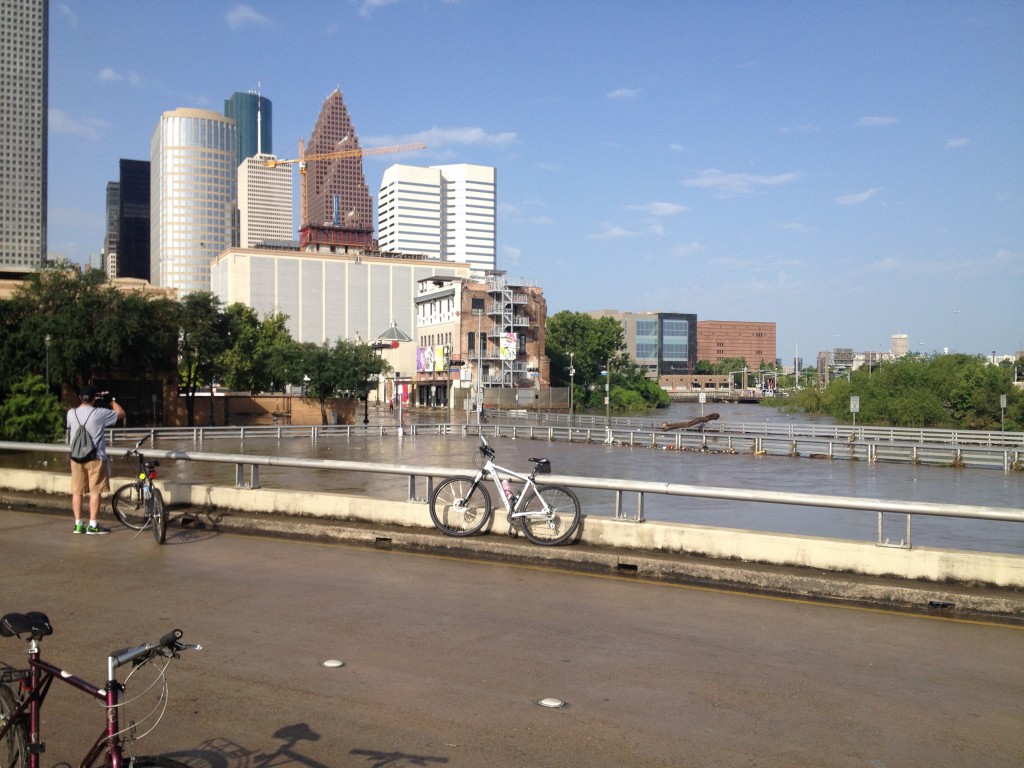
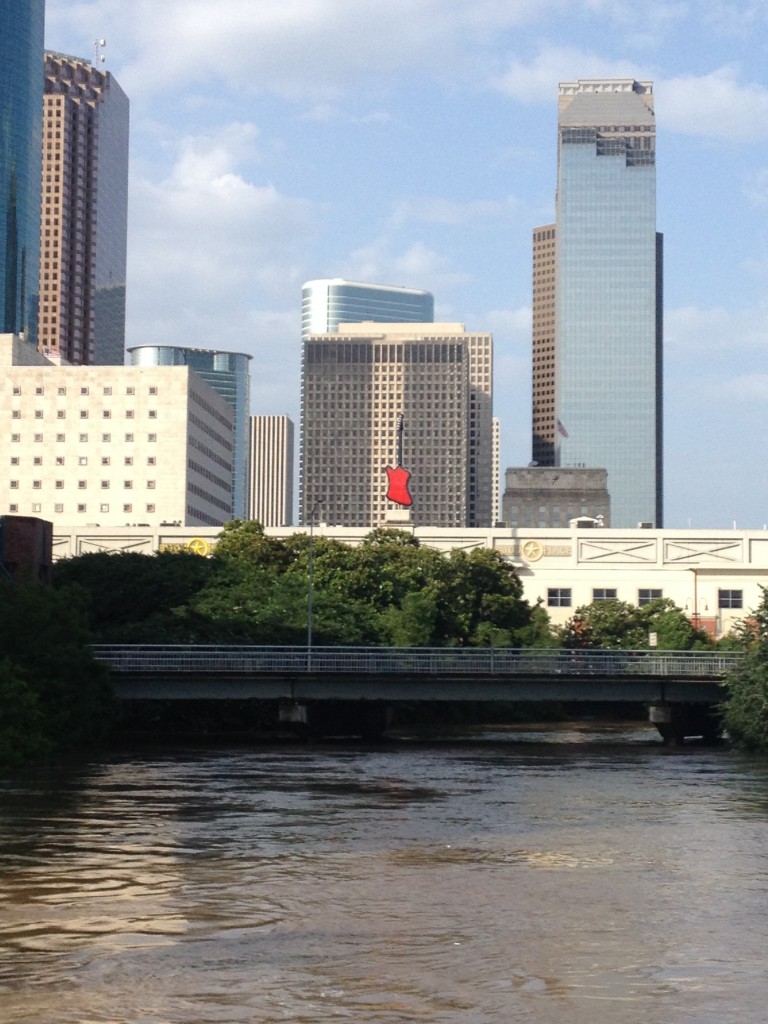
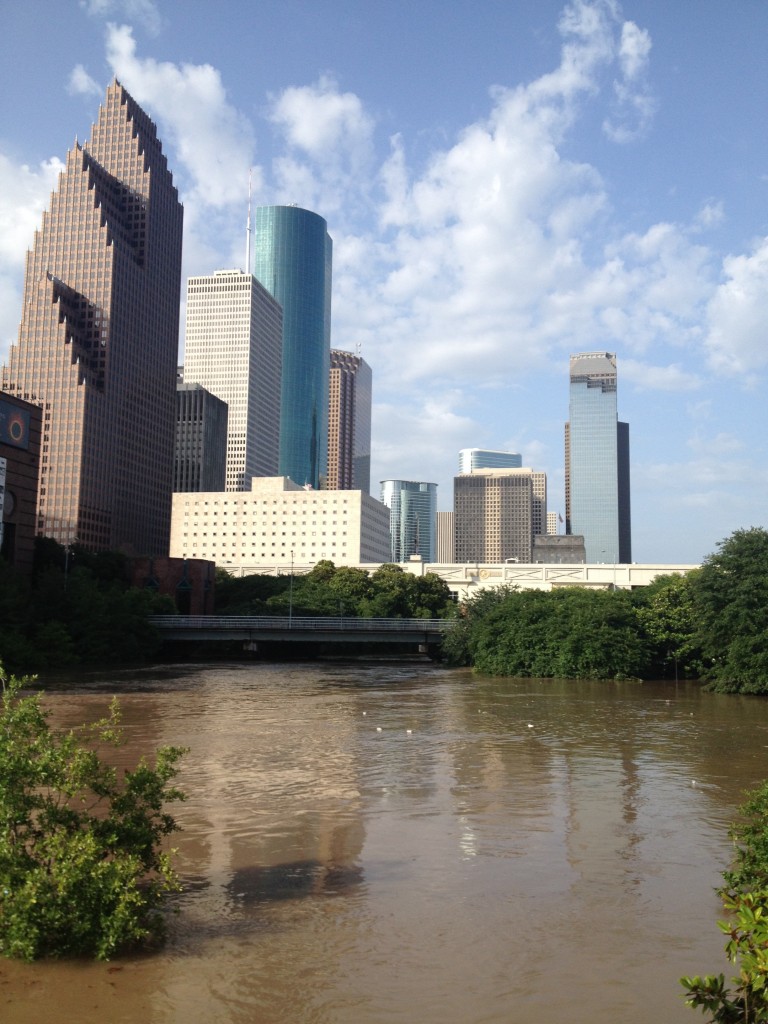
Well said Don.
Glad to see that you know what the money went for Paul….”any lawful purpose”, as in the Brown Administration.
I wish they would tell us? Costello has a much bigger problem after the Texas Supreme Court ruling this morning. I have yet to find a lawyer who says the City won’t have to return all the money collected under ReNew Houston.
So, where’s the refund going to come from, since the City can’t raise taxes due to the idiotic revenue cap that precipitated the drainage fee in the first place?
I don’t see the objection to a fee based on impermeable area. Impermeable area is directly related to how much water load a property puts on the drainage system. Every property ought to pay base don its impact, including churches (which also ought to be charged for police and fire service), schools, and government entities. Absent that, there’s no way to properly allocate the costs. No one opposed to the drainage fee has presented a viable alternative, given the constrained funding environment the City is under.
Ross,
I guess your saying the City of Houston can’t get by on 4,500,000,000 a year? Let’s say that you are a liberal buffoon who can’t squeeze by on that amount of money.
I would start with the 12 million dollars Annise Parker took out of the Rebuild Houston fund and gave to the 380 developers and say something like Mayor you can’t do this because Don Hooper and the rest of the Prop1 opponents will say see look it’s the Mayor’s slush fund. Then we form a gang and go get Stephen Costello’s nuts back from the Mayor.
If you want me to spend fifteen or twenty minutes looking at the budget to find a billion dollars of wasteful spending you will have to convince me it’s less fun to watch the COH go into bankruptcy and have a bankruptcy judge or magistrate wipe out all our debts and pension obligations. For me pass the popcorn.
Don, you can’t find a billion in waste in the 2016 budget, which I doubt you’ve even looked at. The General Fund budget is $2.4 billion, with 57{997ab4c1e65fa660c64e6dfea23d436a73c89d6254ad3ae72f887cf583448986} of that being for public safety. The General Fund is the only place you can get money for refunds, since the rest of the budget is encumbered for specific purposes. That includes the $1 billion for operating the water and sewer system, $0.5 billion for the airports, and $100 million for the convention and visitors fund
Here’s the proposed budget, have at it http://www.houstontx.gov/budget/16budprop/FY2016_Proposed_Budget_Book.pdf.
Ross,
Are you saying the COH is flat broke? Because if you are I clearly remember Annise Parker repeatedly telling us that the COH is fine. So if you read my response above you know I watched the budget hearing on Thursday. If you go back over the years and read my writing there has always been a group of us that have dealt in reality as far as the budget is concerned and have tried to do something about it. My question to you is do we leave your boy laying on the floor without his nuts or do you man up and say, gee Don has been saying for years we have a structural problem with the COH finances. I am in the group that believes the finances are way to far gone for anything but bankruptcy. I listen to others who say, “Don we won’t be able to borrow any money and will lose our credit rating”. My response is always the same. Awful, you mean the buffoons can’t continue borrowing money, terrible. Dude it’s over, pop the corn, if you have friends who have looted and plundered the COH for years you need to tell them it’s over. I personally don’t think the shell game of a budget is worth the paper it’s printed on. However, if you wanted to have an honest intellectual conversation with yourself first about how we are going to start telling the truth you might interest me into a very short dialog about how the COH needs to restructure. You have to first admit that the Mayor and Costello have been telling some tall tales for years and the COH does have major financial problems. Consider it a soul cleansing, therapy, a catharsis, because a group of us have been there for years. My current plan is to watch and see if Judge Ward grabs all the revenue and places it in his court registry.
Don’t think for a second though I could’t find a billion dollars in wasteful spending. I am keenly aware that the majority of the budget is salary, there are many that need to go. Fundamentally, I have never believed that our COH retirees need to be paid more than those fighting fires and patrolling the streets and this is the real problem. By the way, I sat right behind Ray Hunt at the Pension hearing in Austin. You may want to watch my archived testimony before telling me I don’t understand the budget.
Since the money didn’t actually go to flood relief it really doesn’t matter. Unless you have a burning commitment to continuing to fund Mayor Parker’s slush fund. . . .
Well said Don.
I only wish more Fort Bend County residents realized that a large portion of Fort Bend County is only protected from flooding by levies. These levies are not high enough to protect these areas in a hurricane event like Alicia that occurred back in 1983 and with the recent rains the levies came within 3 feet of being topped in some areas. Thanks for getting the information out and trying to make a difference.
Between this and the TIRZ tyranny these corrupt piliticos are ruining our nieghborhoods!
As one who voted against the rain tax, agree with the comments above.
And right on cue… big Texas Supreme Court decision today — a huge slapdown of misleading pols Parker and Costello.
Good timing, Mr Hooper!
My father’s propery in Houston was taxed at close to 7K annually.. Does the City of Houston still have the authority and right to require the taxes after the Supreme Court ruling?